5 steps to planting last-minute patio pots this summer
So, summer's here and you’ve left it late to get your summer patio plants in their pots, ready to add some colour to your outdoor space. Don't despair, because leaving gardening late can have its advantages. You're likely to get bedding bargains in garden centres keen to sell off their summer annuals and you'll still be able to enjoy pots of colour throughout July and August and even into September if you look after them and choose wisely.
RELATED: 7 easy to grow flowers for your garden
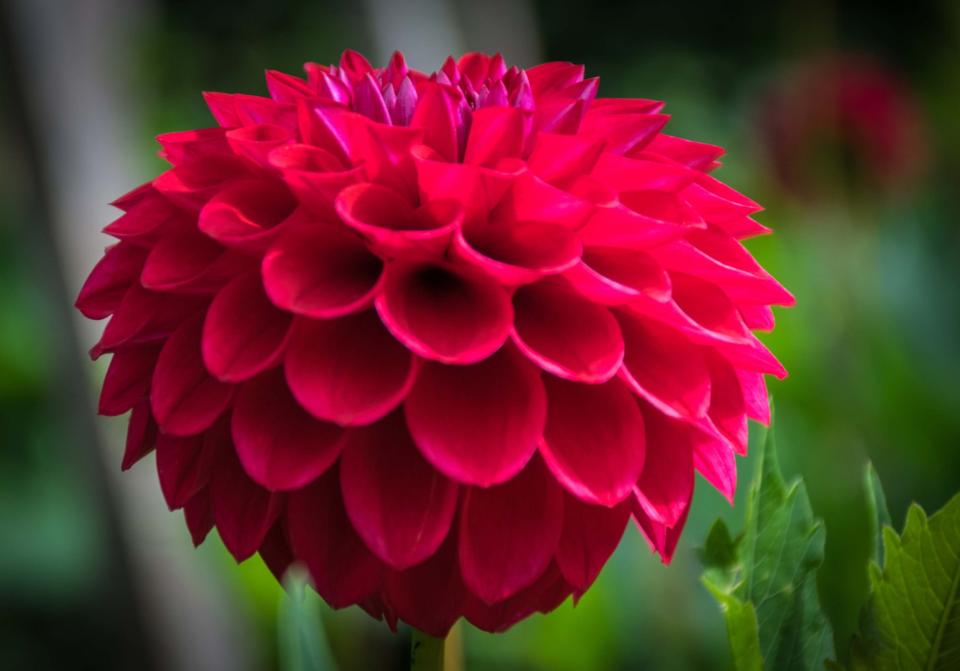
Late summer-flowering dahlia (Thinkstock/PA)
Late-summer blooms such as dahlias and lilies can help make summer containers last into autumn, so consider putting a few of them in to prolong your season. Here’s our step-by-step guide to planting up some summer colour for your patio, even if it’s late in the season…
1. Check that annuals aren’t pot-bound
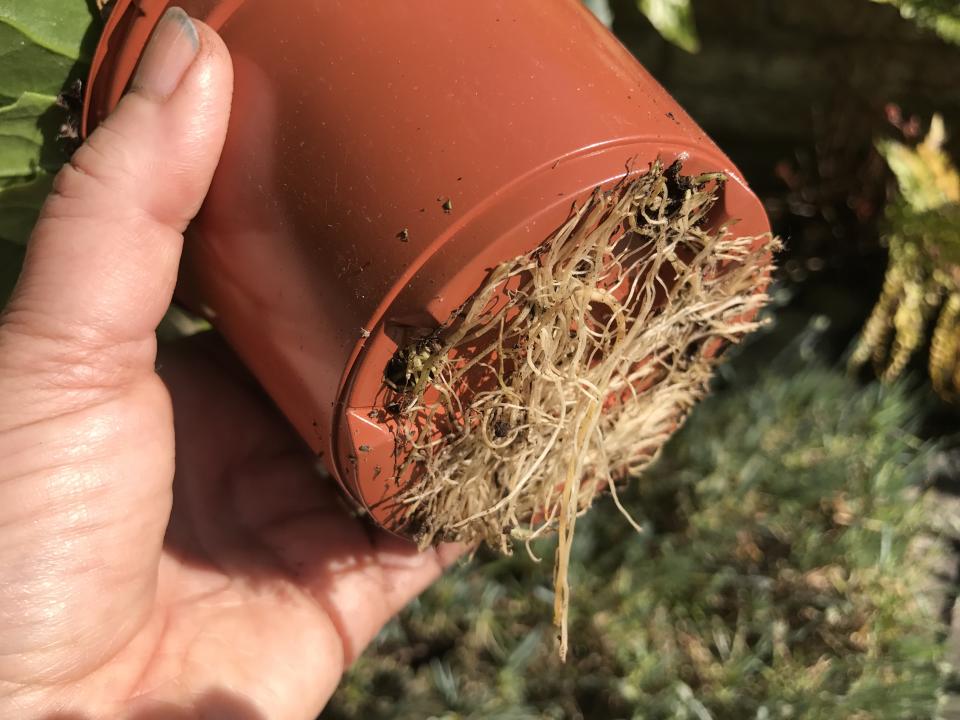
Avoid pot-bound plants (Hannah Stephenson/PA)
When choosing bedding, try to avoid plants which have loads of roots sticking out of the bottom of the pot, which indicate the plants have been in there for far too long and can make it tricky to remove the plants from their containers.
STORY: How to look after your lawn in summer
2. Make sure plants have good drainage
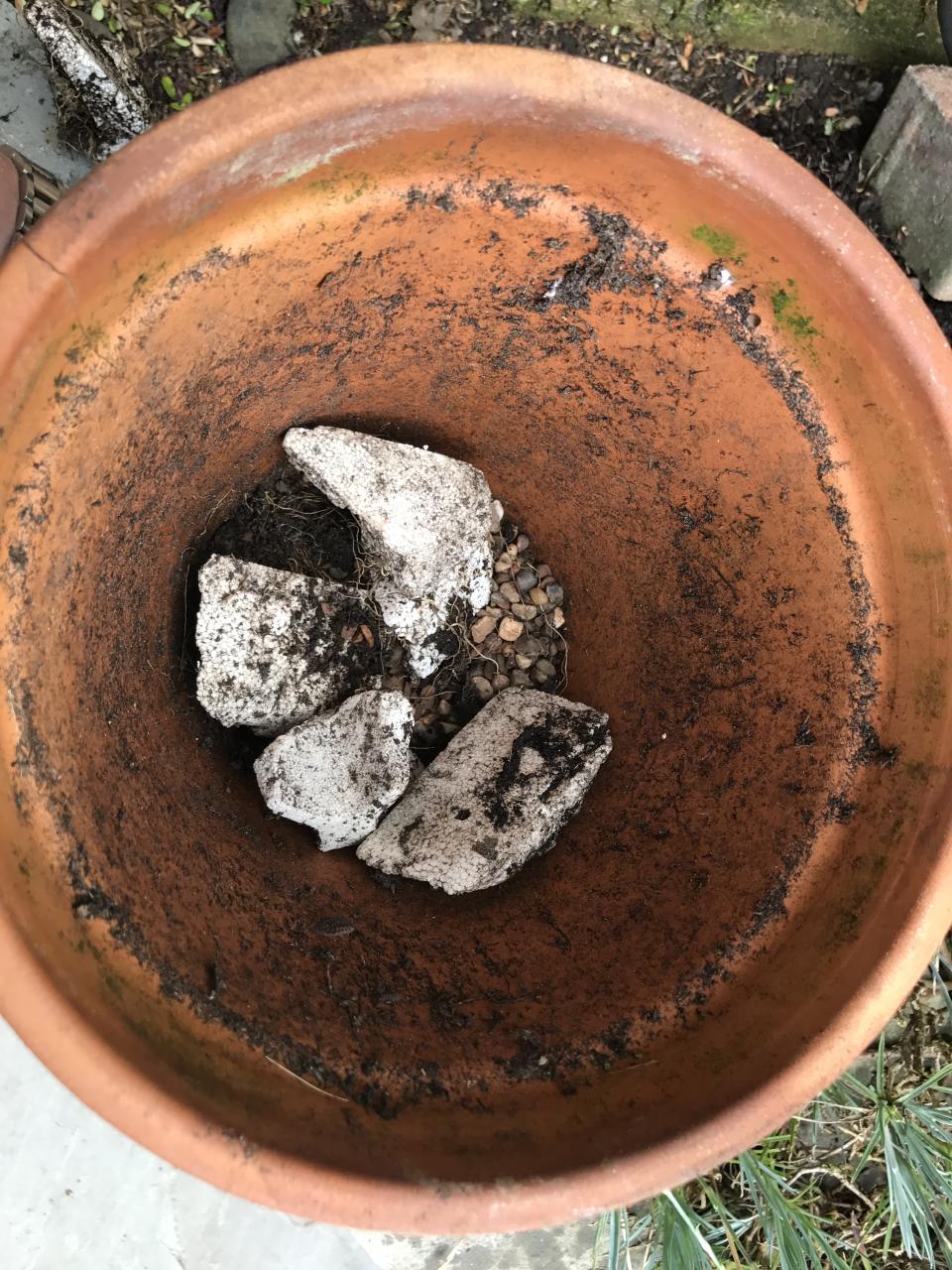
Add drainage material to pots (Hannah Stephenson/PA)
Line the base of pots with drainage holes with crocks (bits of broken pot) or some other material, which will allow free drainage because most patio plants won’t enjoy sitting in water and wet roots. I usually use the polystyrene I bought the bedding plants in because it’s lighter than crocks if you are going to be moving the pots around. Then fill the pot with multi-purpose compost to around three-quarters full, adding water-retaining crystals to the mix.
3. Structure your display
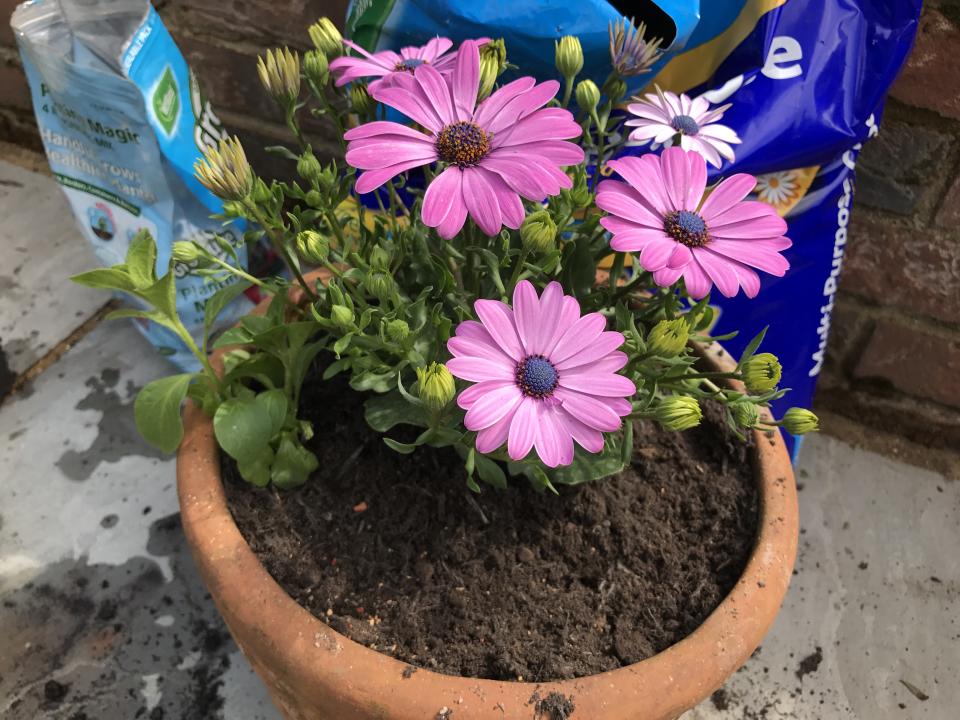
Start with the big plants (Hannah Stephenson/PA)
Put your main plant in first, which should be taller than the trailers which go around it and will spill over the side of the pot. The tall plant will form the framework for the rest of the display. Firm it in with more compost. Fill around the edges with smaller plants such as trailing lobelia, bacopa and verbena, adding compost as you go. Often people will use a miniature conifer as the tall aspect of the display, but you can just as easily use upright geraniums or osteospermums in smaller containers or more exotic plants like spiky cordylines or exotic-looking cannas if you have bigger pots and want a more tropical-looking display.
MORE: The most Googled house plants: from the snake plant to the prickly cactus

Geranium 'Grandeur Power Red', from £16.99, Thompson & Morgan
BUY NOW
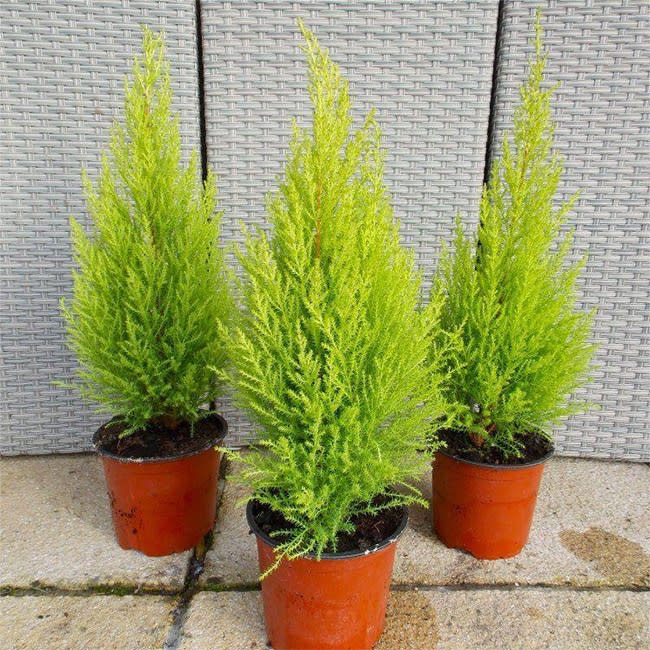
3 x Lemon scented Monterey Cypress Goldcrest, £9.99, Gardening Express
BUY NOW
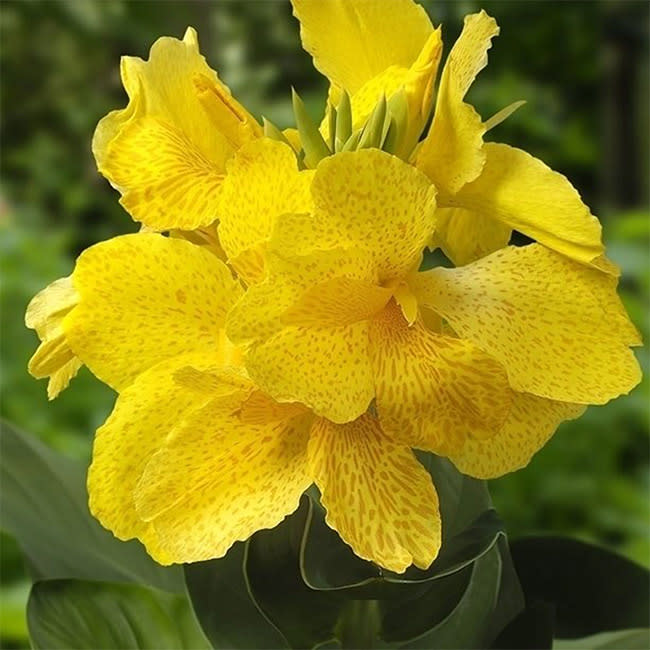
Yellow Canna, £15.99, Bakker.com
BUY NOW
4. Feed your plants
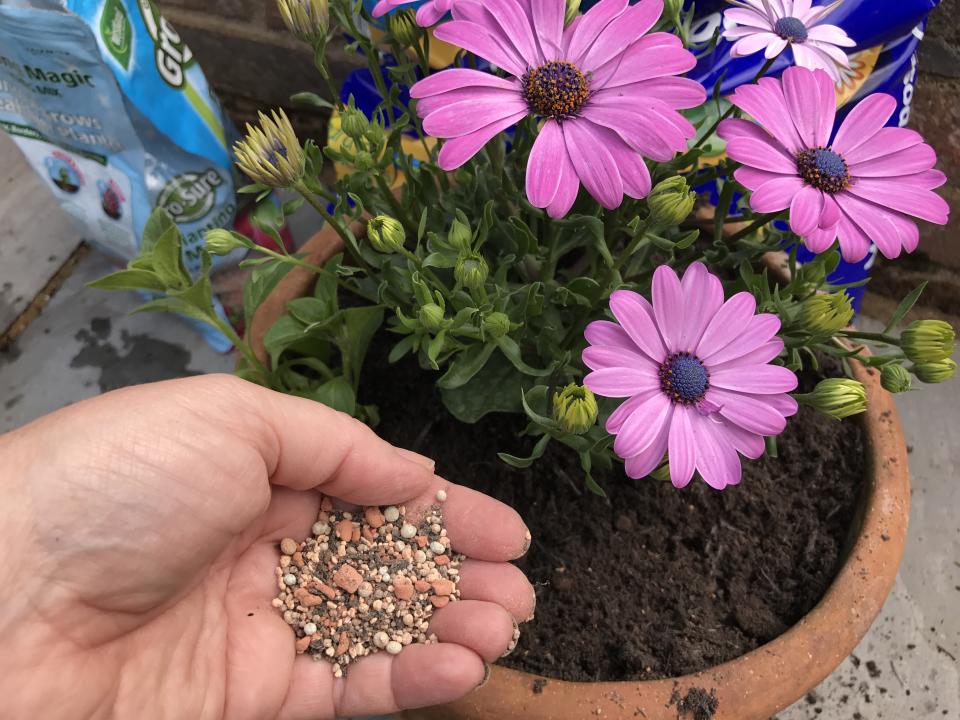
Add feed (Hannah Stephenson/PA)
Add granular feed to the compost mix which should keep it going through summer and beyond – there are many formulas on the market, which help reduce the need for feeding the plant with liquid feed throughout the summer. Many composts also contain water-retaining and feeding elements.
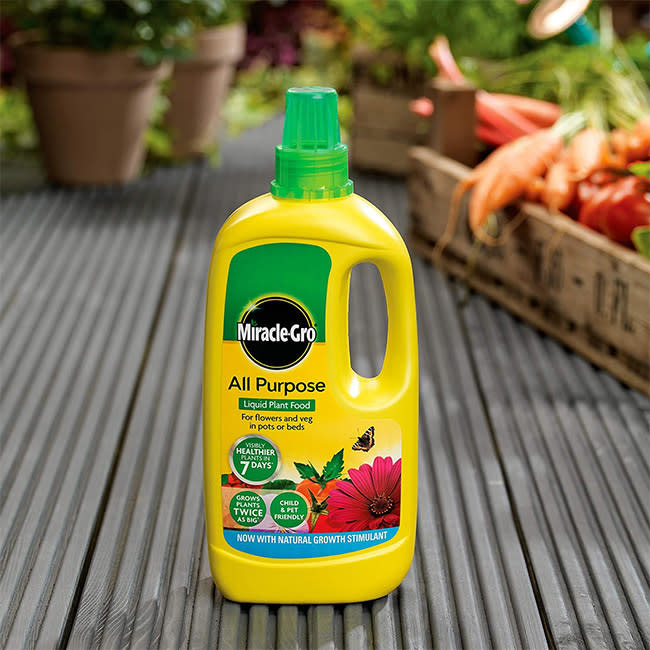
Miracle-Gro All Purpose Concentrated Liquid Plant Food, £8.45, Amazon
BUY NOW
5. Keep them well watered
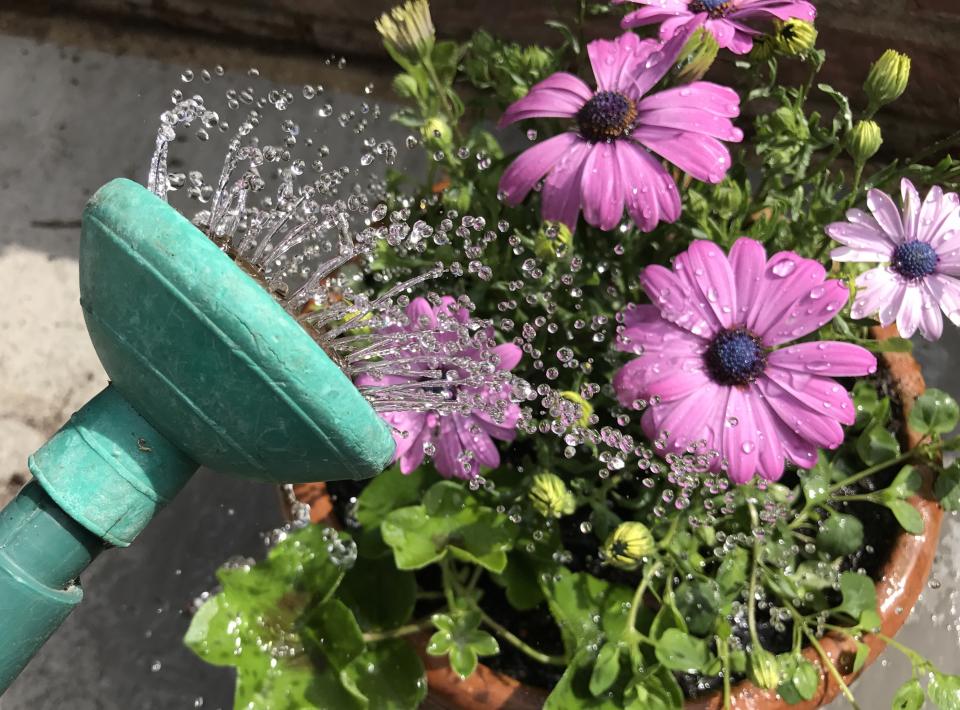
Water in well (Hannah Stephenson/PA)
Water newly-planted plants in well. If it’s dry, you will need to water the plants every day and in prolonged dry spells, twice a day. Do it early morning or at dusk to reduce evaporation. Remember that the smaller the pot you use, the more watering the plants will need because there will be limited compost to retain moisture. Go for the largest pots you have to help avoid being a slave to the watering can or hosepipe.
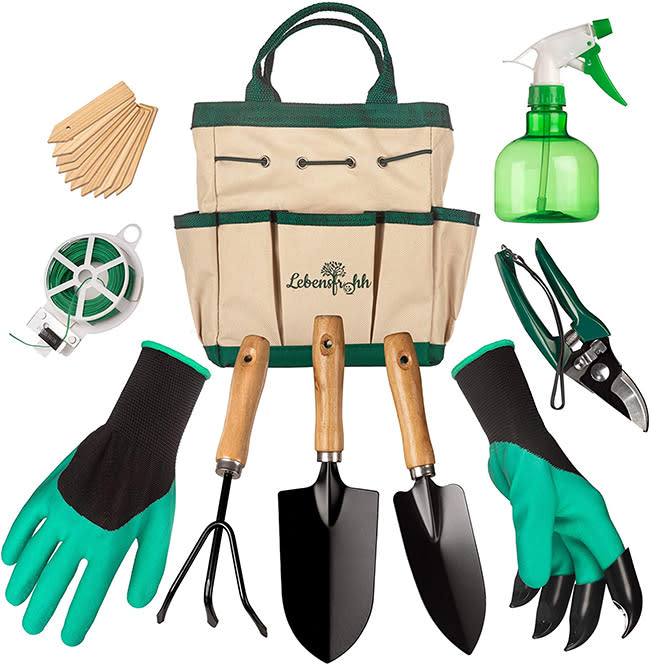
Lebensfrohh Garden Tool Set, £34.99, Amazon
BUY NOW
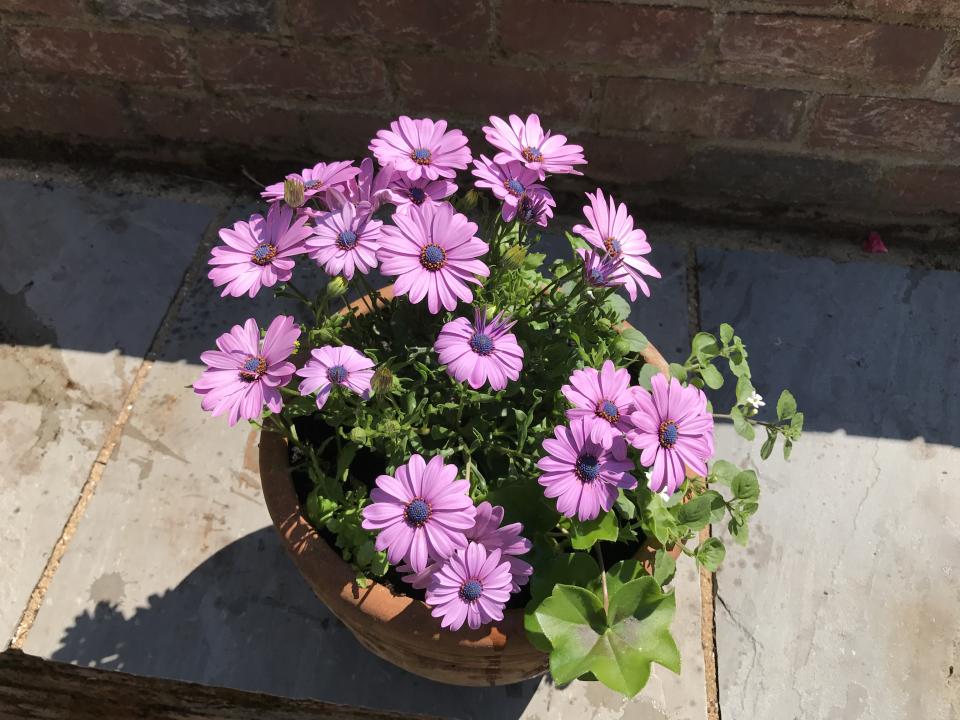
Osteospermum pot (Hannah Stephenson/PA)
You're not too late for colour – but don't delay any longer.
This article contains affiliate links, which means HELLO! may earn a small commission if a reader clicks through and makes a purchase. More information.
Like this story? Sign up to our newsletter to get other stories like this delivered straight to your inbox.

 Yahoo News
Yahoo News 

